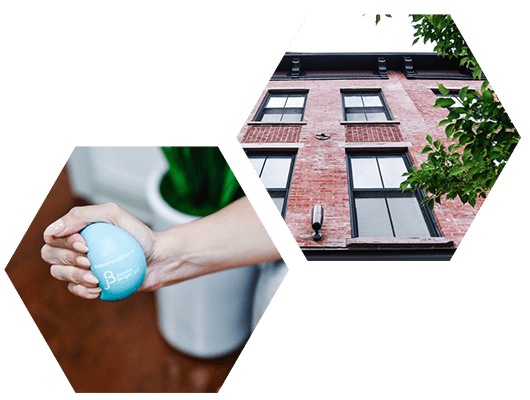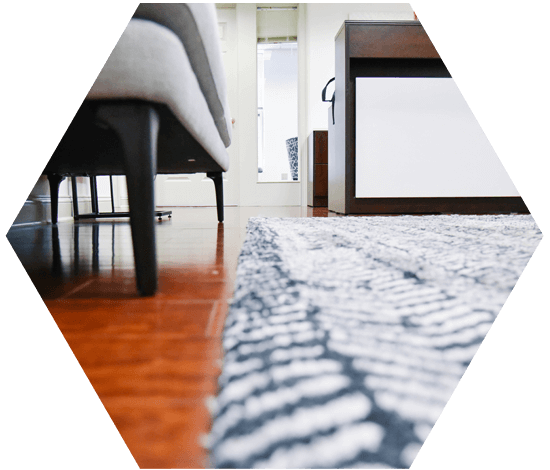New Jersey Adoption Attorneys
Adoption Attorneys in Morris County
Legal support to grow your family
Adoption changes the lives of all involved—but in addition to being a monumental and celebratory moment for a family, it’s also a legal process. This means that it can be impacted by laws, court decisions, and more.
The attorneys at Jacobs Berger, LLC have the experience to guide you through the process and help ensure your family’s life together begins on solid legal footing.
Not only do we help prospective parents through the adoption process, but we’ve also succeeded in setting a new precedent in New Jersey by successfully arguing in court for the rights of adoptive parents in a complex family structure.
If you’re looking to adopt or need to defend your rights as an adoptive parent, contact us today.
How to Adopt a Child in New Jersey
In New Jersey, anyone over the age of eighteen may adopt a child—provided that child is at least ten years their junior.
Prospective parents can adopt as single people or as married couples. They can also be married but adopt alone (i.e., without their spouse adopting the child too), as long as their spouse signs a consent form.
You may seek to go through the process here if you’re a NJ resident or are looking to adopt a child born in-state or a child who is under the care of a licensed, in-state adoption agency.


Regardless of who you are, if you adopt through an agency or from out-of-state, you need to show you are fit and suitable for a child. In most cases, this is done through an adoption home study—although in the case of stepparent or second-parent adoptions, a home study is typically only ordered if something shows up in the results of a background or child abuse registry check.
This process is also highly recommended for private, in-state adoptions. It entails a private agency completing the following:
- Verification of the information you provided, including employment
- Health assessments of prospective parents
- Reference check
- Interviews with prospective parents and those living in the home into which the child would be adopted
You’ll also have to undergo a criminal background check and child abuse registry check.
The timeline for filing for adoption varies according to the path you’ve taken (i.e. agency, private, etc.), but once you file, a process legally known as filing a “Complaint for Adoption,” there will be one or more hearings with a judge to complete the process.
In New Jersey, all adoptions must proceed through the court. Therefore, we strongly recommend working with a lawyer who can guide you through the paperwork and hearings.
The adoption attorneys at our family law firm are experienced in working with and representing prospective and adoptive parents of all backgrounds.

What Does a NJ Adoption Lawyer Do?
Adoption lawyers are family law attorneys who specialize in adoption. Their role in an adoption is to help prospective parents navigate the process at the state level—and to ensure that all legal requirements are met. This includes everything from consent paperwork to required court hearings.
Adoption attorneys provide services that aren’t covered by adoption agencies. They also must meet state bar requirements, including continuing education—which means they’re up to date on the latest changes in adoption law.
What is an uncontested adoption?
Uncontested adoptions occur when the birth parents have legally relinquished all parental rights to their child.
If you’re adopting through an agency, the birth parents relinquish their rights to the agency, which then relinquishes those rights to you. If you’re adopting through a private, or independent, adoption, then the birth parents will relinquish their rights directly to you.
The same holds true for situations where you’re adopting someone you already know, such as a stepchild or relative adoption.
What is a contested adoption?
Contested adoptions happen when one or both of the birth parents don’t want to relinquish their rights to the child to the adopting parties.
In relative or stepparent adoptions, the refusal of consent may be clearly stated from the beginning. In some cases, if a birth parent doesn’t want to give up their rights, the child can be adopted without their consent. This happens when the birth parent is deemed unfit or found by the court to be unable to care for the child.
The process for proving a parent is unfit involves far more than showing that they aren’t a “good” parent. For example, failing to pay child support alone is typically not sufficient proof of an unfit parent.
In agency or independent adoptions, a biological parent might decide that they don’t want to give up their right for any number of reasons. Complications can also arise around uncertain parentage. For example, a biological father might consent to adoption, only to have DNA testing later show that he isn’t the biological father of the child.
While some of these revelations may occur once the adoption process has already started, contested adoptions can certainly be stressful for all involved.
Such complications are one of the many reasons why you should retain the legal services of an adoption attorney. Adoption lawyers can’t change someone’s mind, but they can help identify legal issues with consent paperwork early on—and if needed, they can argue your case in court.
The family law attorneys at Jacobs Berger, LLC, have experience that runs the gamut of the adoption process—from helping prospective parents through uncontested and contested adoptions to successfully arguing for their rights in court.
Types of Adoptions We Can Help With
At Jacobs Berger, our adoption attorneys have guided many different families through the adoption process—including agency, private (a.k.a. independent), stepparent, relative, and adult adoptions.
Adopting as stepparents
A stepparent adoption occurs when you’ve taken on a parental role for your spouse’s child and wish to legally formalize that family relationship. While this process is similar to a traditional adoption, the court may permit you to bypass a homestudy and proceed with a background check and check of the child abuse registry, since the child is already in your home.
In the past, New Jersey law mandated that a child could only have two parents. Therefore, if a stepparent who was married to a biological parent wanted to adopt a child, the other biological parent had to be deceased, consent to giving up their parental rights, or be declared unfit.


If a biological parent relinquishes their rights, they also give up all responsibilities—including any requirements to pay child support. The adoptive stepparent then takes on those rights and responsibilities in their stead.
Recently, however, state law has begun to reflect the complex family structures that exist beyond a two-parent household.
A tri-parenting structure guarantees equal legal and custodial rights for all three parties—and sets a new legal precedent in New Jersey.
Relative adoptions
Whether you’re a grandparent, other relative, or close family friend who’s stepping in to help biological parents, there are many reasons to pursue legal adoption of a child.
Typically, New Jersey adoption laws mean that in order for you to adopt the child, the biological parents must give up their rights—including for visitation. (See “Adopting as Stepparents” above for an unprecedented exception to New Jersey’s requirements.)
If you’re providing long-term care for a child whose biological parent doesn’t want to relinquish their status as a legal parent, you can pursue kinship legal guardian status instead.


This allows the birth parent to retain some rights and responsibilities, including:
- Visitation
- Financial support, if or when that’s a possibility
- Right to not consent to the child’s adoption
Custodial rights, however, are relinquished.
Kinship legal guardianship gives you, as the caretaker, more rights and responsibilities. These include:
- Medical, health, and educational decisions
- Responsibilities for safety, maintenance, and protection
- Eligibility for state subsidies
Unlike adoption, which is generally not reversible, kinship legal guardianship can be changed if the biological parent can show in court that they’re able to care for their child.

Adult adoptions
In New Jersey, an adult can adopt another adult so long as they’re at least ten years older—and so long as the adoption is to the “advantage and benefit” of the person being adopted.
Like child adoptions, adult adoptions create a legal family. This path may be used in cases where a person wants to be adopted by a stepparent but was previously prevented from being adopted because a biological parent refused consent.
It also tends to be used in other, similar situations where an adult would benefit by legally creating a family with people who care for them.

Start Your Legal Adoption Process in NJ Today
At Jacobs Berger, LLC, our adoption attorneys have extensive experience in guiding prospective parents through the process—and helping them navigate challenges, should they arise.
Whether you’re seeking to adopt a child, stepchild, relative, or adult, we can help make the process smoother and more straightforward. When needed, we can also defend your rights in court.
Contact us today to schedule a strategic planning session with one of our adoption attorneys—and get the legal support to help your family grow.


